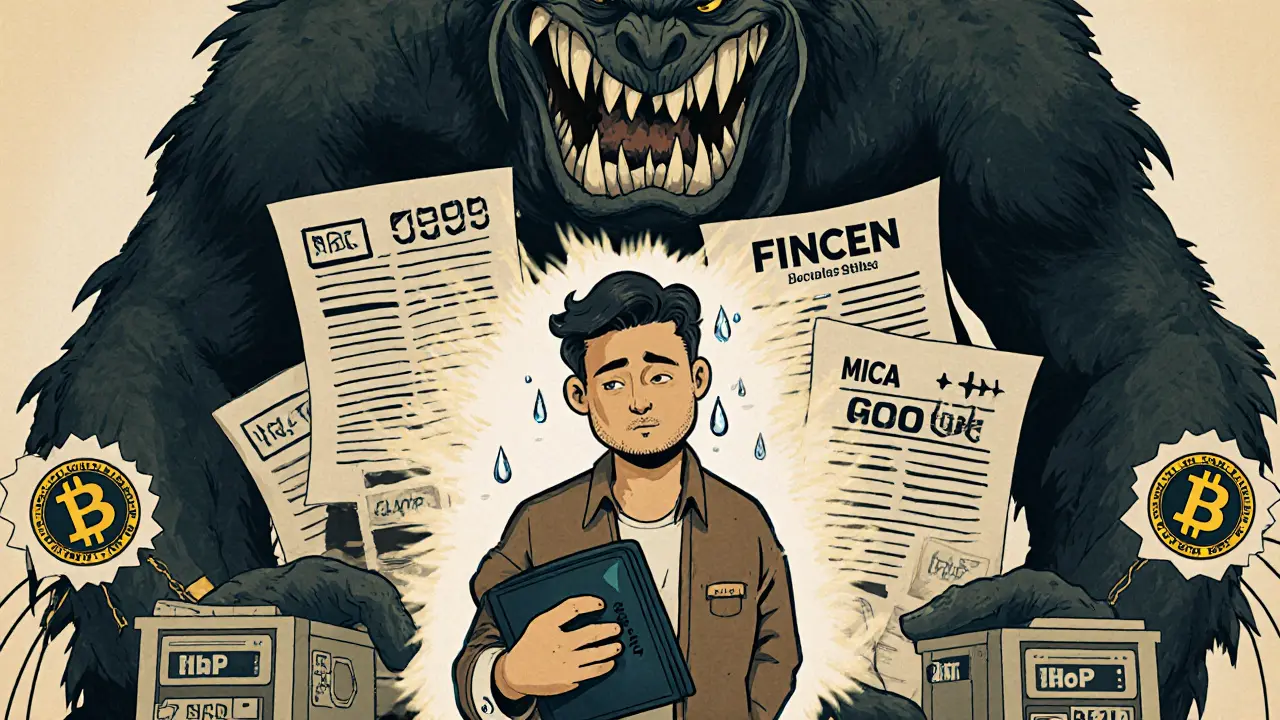FinCEN: What It Is, How It Shapes Crypto, and What You Need to Know
When you buy crypto with a bank transfer, trade on a U.S. exchange, or even send tokens to a friend, you’re already interacting with FinCEN, the Financial Crimes Enforcement Network, a U.S. Treasury bureau that tracks money flows to stop laundering and terrorism financing. Also known as the Financial Crimes Enforcement Network, it doesn’t issue crypto rules directly—but every major exchange, wallet, and fiat gateway in America has to follow them or face fines, shutdowns, or criminal charges. If you’ve ever been asked for your ID to use Binance US, Coinbase, or Kraken, that’s FinCEN’s fingerprint on the system.
FinCEN doesn’t care if you’re holding Bitcoin or Solana. It cares about AML, Anti-Money Laundering rules that require crypto businesses to verify users, log transactions, and report suspicious activity. Also known as Know Your Customer, these rules apply whether you’re moving $10 or $10 million. That’s why platforms like Bitstamp and Kraken have strict KYC forms—they’re not being nosy, they’re legally required to collect your name, address, and government ID. Miss one step, and the exchange risks losing its license. And if you’re using P2P platforms in Bangladesh, Russia, or Iran to bypass these checks? You’re walking into a legal gray zone where FinCEN’s reach still matters. Even if you’re not in the U.S., if your transaction touches a U.S. bank or exchange, FinCEN can trace it.
FinCEN also defines who counts as a fiat on-ramp, any service that converts real money like USD or EUR into crypto. Also known as money transmitter, this includes not just exchanges but also apps that let you buy Bitcoin with PayPal or Venmo. If you’re building a crypto app that lets users deposit dollars, you need a money transmitter license from FinCEN—or you’re operating illegally. That’s why so many crypto startups fail before launch: they didn’t budget for legal compliance, or they thought they could skip it. FinCEN doesn’t negotiate. It enforces.
What you’ll find in the posts below isn’t just random crypto news. It’s a map of how FinCEN’s rules ripple through real platforms and projects. You’ll see how Iranian users get blocked by OFAC sanctions tied to FinCEN’s watchlists. You’ll see why Coinquista vanished—no compliance, no license, no future. You’ll see how MiCA in Europe mirrors FinCEN’s approach, and why Chinese crypto holders have zero legal recourse. This isn’t theory. It’s enforcement. And if you’re trading, staking, or airdropping crypto, you’re already part of this system—whether you realize it or not.
AML Compliance for Crypto Businesses: What You Need to Know in 2025
by Johnathan DeCovic Nov 10 2025 13 CryptocurrencyAML compliance for crypto businesses in 2025 is mandatory, not optional. Learn the global rules, real costs, and step-by-step requirements to avoid fines, prison, or shutdown.
READ MORE
